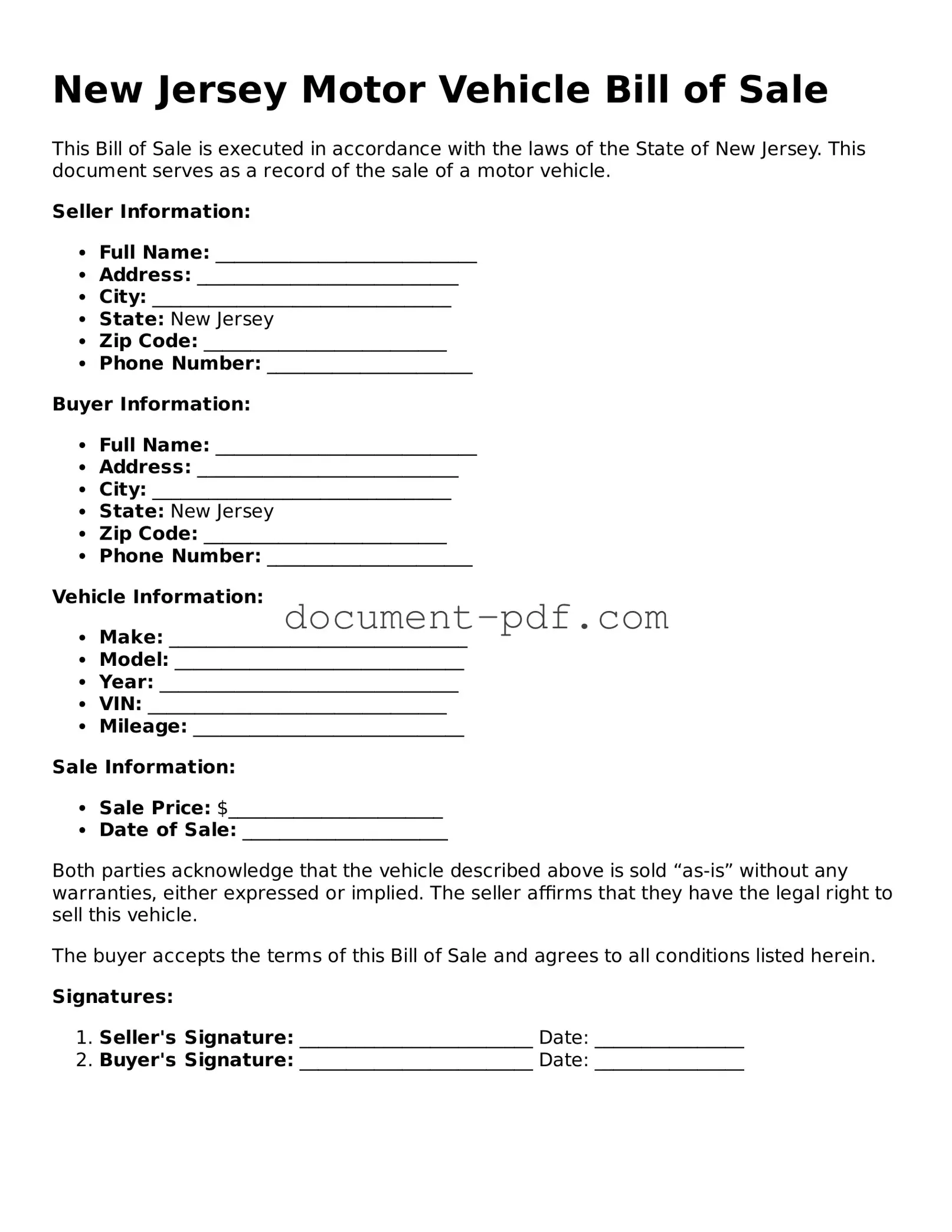The New Jersey Vehicle Title Application is a document that serves a similar purpose to the Motor Vehicle Bill of Sale. When you purchase a vehicle, this application is essential for transferring the title from the seller to the buyer. It provides necessary information about the vehicle, such as its make, model, and Vehicle Identification Number (VIN). Like the Bill of Sale, it acts as proof of ownership and is crucial for registering the vehicle in the new owner's name.
A Vehicle Registration form is another document that parallels the Bill of Sale. After acquiring a vehicle, the new owner must register it with the state. This form captures details about the vehicle and the owner, ensuring that the vehicle is legally recognized on the road. Both documents serve as vital steps in the ownership process, with the Bill of Sale often being required to complete the registration.
The Odometer Disclosure Statement is also similar to the Motor Vehicle Bill of Sale. This document is often included in the sale process to record the vehicle's mileage at the time of sale. It protects both the buyer and seller from potential fraud regarding the vehicle's history. Just like the Bill of Sale, it provides a legal record of the transaction and is often required for title transfers.
A Purchase Agreement is another document that shares characteristics with the Bill of Sale. This contract outlines the terms of the sale, including the purchase price and any conditions agreed upon by both parties. While the Bill of Sale serves as proof of the transaction, the Purchase Agreement details the specifics of the deal, ensuring that both the buyer and seller understand their obligations.
The Affidavit of Ownership is a document that can be similar in function to the Bill of Sale. In cases where the original title is lost or unavailable, this affidavit can serve as a sworn statement confirming ownership of the vehicle. It can help facilitate the transfer process, providing an alternative means of proving ownership when a Bill of Sale may not be sufficient.
To facilitate your transaction, it’s essential to understand the significance of a comprehensive Motor Vehicle Bill of Sale and you can find more details by visiting this resource.
The Certificate of Title is another important document in the vehicle ownership process. This official document serves as proof of ownership, similar to the Bill of Sale. When a vehicle is sold, the title must be signed over to the new owner, which officially transfers ownership. Both documents are crucial for ensuring that the new owner has legal rights to the vehicle.
Finally, a Lien Release is a document that can be closely associated with the Motor Vehicle Bill of Sale. If a vehicle was financed, the lender may hold a lien on it until the loan is paid off. Once the loan is settled, a Lien Release is issued, indicating that the lender no longer has a claim to the vehicle. This document is important for the buyer, as it ensures they can freely transfer ownership without any encumbrances.

